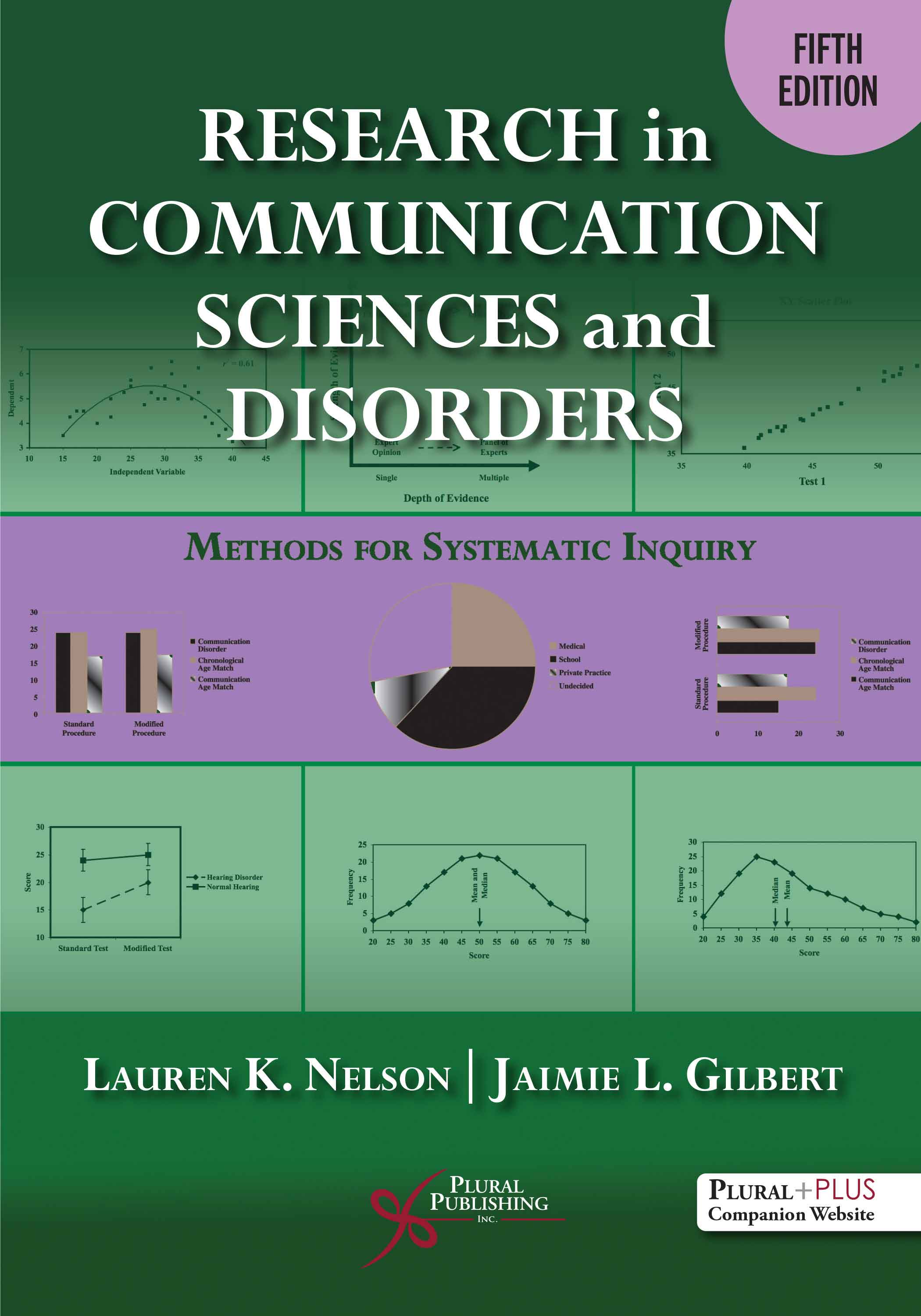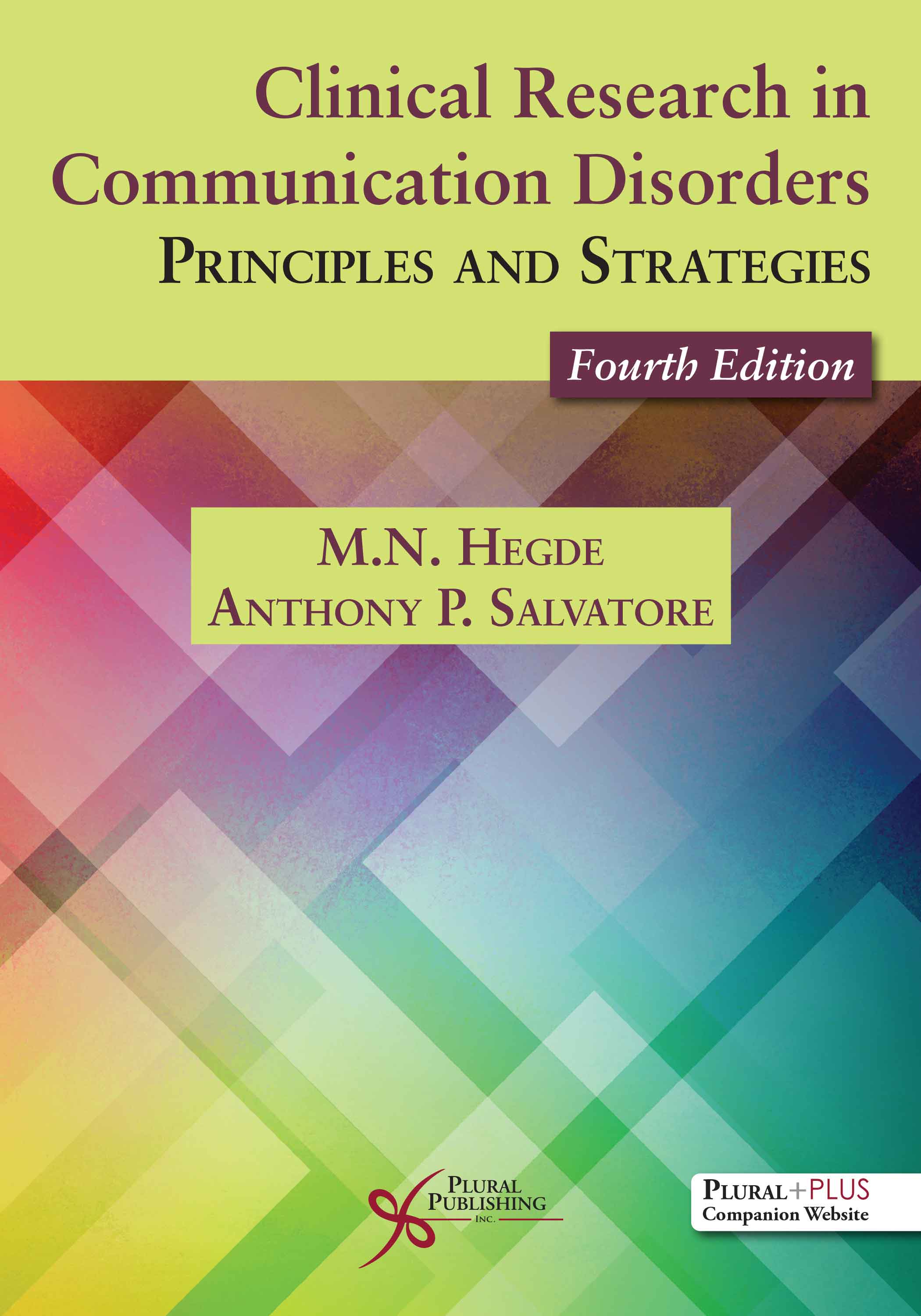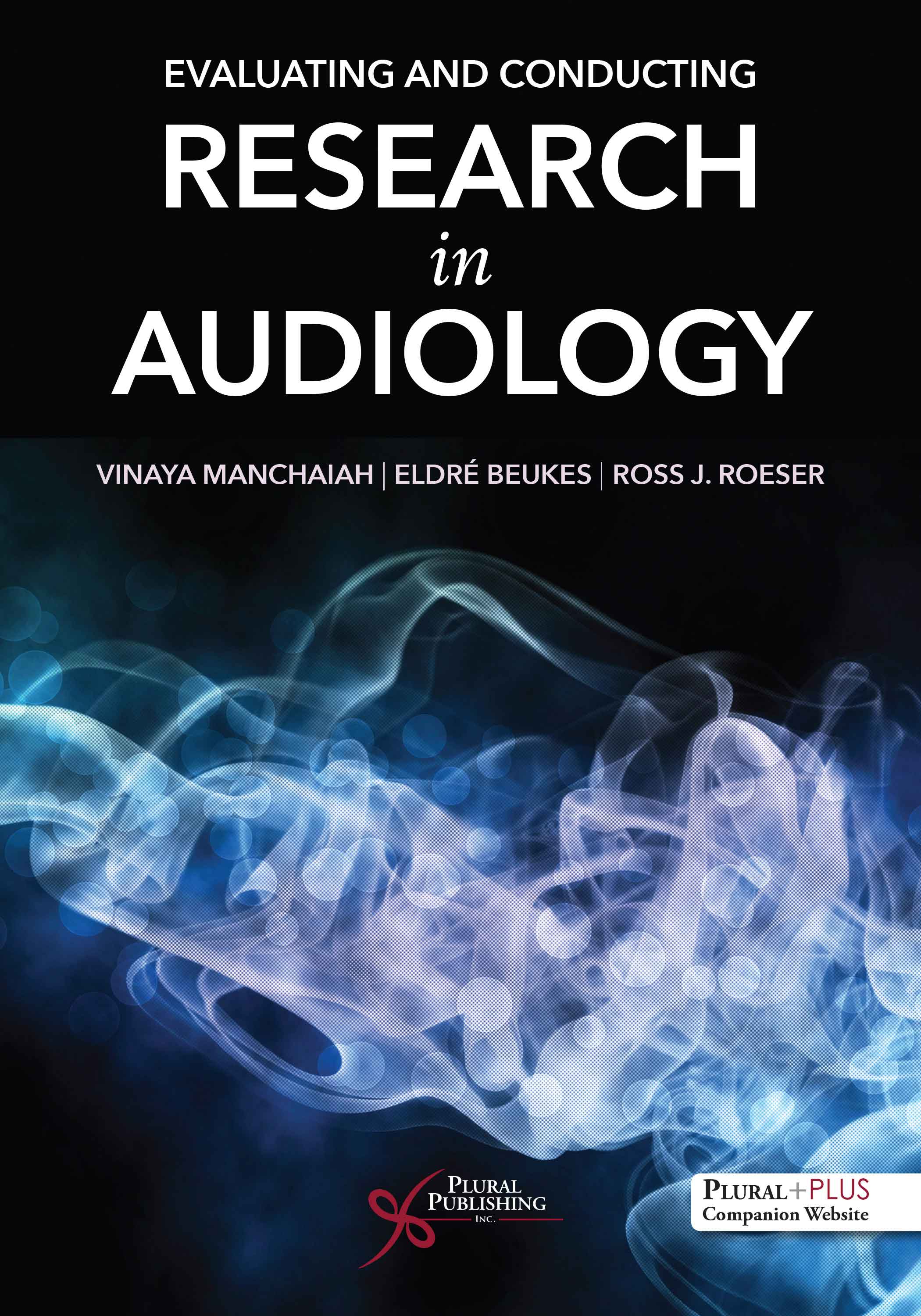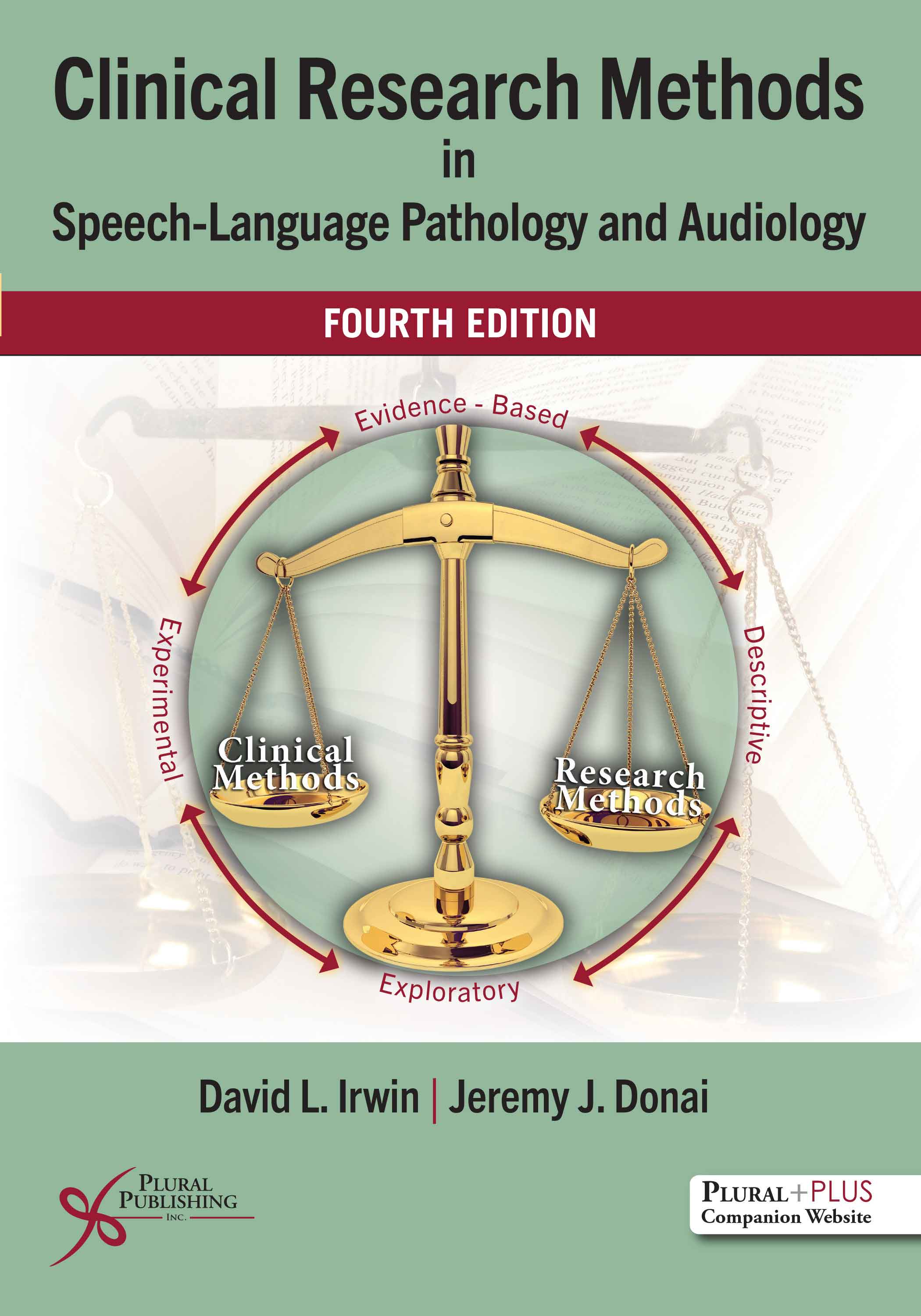
Research in Communication Sciences and Disorders: Methods for Scientific Inquiry
Fifth Edition
Lauren K. Nelson, Jaimie L. Gilbert
Details: 309 pages, B&W, Softcover, 7" x 10"
ISBN13: 978-1-63550-702-7
© 2026 | Available
For Instructors
Purchase
Research in Communication Sciences and Disorders: Methods for Systematic Inquiry, Fifth Edition is a comprehensive yet accessible text meant for instructors and students of research methods in the field of communication sciences and disorders. This innovative book reflects the current emphasis on evidence-based practice in speech-language pathology and audiology. The concepts associated with evidence-based practice are integrated throughout the chapters. Rather than treating empirical research and the search for clinical evidence as separate topics, this text presents both as different applications of a process of scientific inquiry. The format of the chapters reflects the steps a researcher or clinician might complete when conducting an investigation. Included are features that guide students and assist with active learning. Each chapter has a set of updated review questions or case scenarios that can be used as homework, probe questions in class, or as a basis for group activities. In addition, the authors provide lists of supplemental readings from the research literature in the field.
New to the Fifth Edition
- New chapter titled Research on Assessments and Diagnostic Approaches
- Additional visual representations for key topics
- Additional case examples in the chapter review questions or on the PluralPlus companion website
- Main objectives at the beginning of each chapter
- Diverse and inclusive language in relation to research
- Supplementary visual representations for students on the PluralPlus companion website
PluralPlus Online Ancillaries
For instructors: PowerPoint Slides, Test Bank, Answer Key, Forms/Documents
For students: eFlashcards, Links to Related Resources, Forms/Documents
Preface
Chapter 1. Empirical and Nonempirical Research: An Overview
Main Points
Systematic Inquiry
Some Roles for Research
Types of Research
Variables
Getting Started with Research
Summary
Review Questions
References
Appendix 1–A. Tips for Reading a Research Article
Chapter 2. Ethical Considerations
Main Points
Protection of Human Participants
Special Protections
Historical Perspective
Institutional Review Boards
Current Perspective
Research Integrity
Avoiding Conflicts of Interest
Credit for Intellectual Effort
Attribution of Ideas
Accuracy in Reporting Information
Data Management
Confidentiality and Privacy
Health Insurance Portability and Accountability Act HIPAA
Summary
Review Questions
Learning Activities
References
Appendix 2–A. Research Scenario
Chapter 3. Identifying and Formulating Research Questions
Main Points
Identifying Important Questions
Formulating Research Questions
Ways to Formulate a Research Problem
Evidence-Based Practice Questions
Criteria for Well-Formed Questions
Summary
Review Questions
Learning Activities
References
Chapter 4. Completing a Literature Search and Literature Review
Main Points
Purposes of a Literature Search
Planning and Conducting a Search
Search Tools
Finding Information from Books
Designing a Search Strategy
Organizing and Documenting Your Literature Search
Summary
Review Questions
Learning Activities
References
Appendix 4–A. Electronic Literature Search
Chapter 5. Writing about Research: Literature Reviews and More
Main Points
Research Phases
Purposes of a Literature Review
Organization
Note Taking
Writing the Paper
Example of an Outline
Summary and Conclusions Section
Citations and References
Example 1: Paraphrase from a Single Source
Example 2: Paraphrase from a Single Source
Example 3: Short Quote from Another Source
Example 4: Short Quote from Another Source
Example 1: Entry for a Journal Article from a Print Source
Example 2: Entry for a Journal Article with a DOI Number
Example 3: Entry for a Journal Article without a DOI Number
Example 4: Entry for a Book
Example 5: Entry for a Chapter in an Edited Book
Example 6: Entry for a Website Document
Literature Review Checklist
Types of Literature Reviews
Writing a Research Proposal
Summary
Review Questions
Learning Activities
References
Chapter 6. Nonexperimental Research Design
Main Points
Nonexperimental Research Designs
Survey Research
Case Studies
Longitudinal Research
Correlation and Regression
Group Comparisons
Causal-Comparative Research
Qualitative Research
Sources and Analysis of Qualitative Data
Ethnography
Grounded Theory
Phenomenological Analysis
Case Study
Conversation Analysis
Scientific Rigor in Qualitative Research
Summary
Review Questions
Learning Activities
References
Appendix 6–A. Examples of Research Designs
Chapter 7. Research on Assessments and Diagnostic Approaches
Main Points
Key Concepts in Measurement
Measurement Accuracy
Face and Content Validity
Criterion Validity
Construct Validity
Measurement Consistency
Rater Reliability
Reliability Across Time
Internal Consistency Reliability
Item Response Theory
Summary
Review Questions
Learning Activities
References
Chapter 8. Experimental Research and Levels of Evidence
Main Points
Experimental Research Designs
Posttest-Only Designs
Pretest–Posttest Randomized Control Group Design
Solomon Randomized Four-Group Design
Switching Replications Design
Factorial Designs
Importance of Experimental Control
History
Maturation
Statistical Regression
Instrumentation
Selection
Mortality
Quasi-Experimental Approaches
Nonequivalent Control Group Designs
Repeated Measures Group Design
Single-Subject Designs
Single-Subject Design Quality
Experimental Designs and Levels of Evidence
Summary
Review Questions
Learning Activities
References
Appendix 8–A. Research Scenario
Chapter 9. Research Participants and Sampling
Main Points
Populations and Samples
Sample Characteristics
Sampling Methods
Simple Random Sampling
Systematic Sampling
Stratified Random Sampling
Cluster Sampling
Purposive Sampling
Random Assignment
Sample Size
Summary
Review Questions
Learning Activities
References
Chapter 10. Data Analysis: Tools for Describing Data
Main Points
Levels of Measurement
Visual Representation of Data
Descriptive Statistics
Frequencies and Percentages
Measures of Central Tendency
Measures of Variability
Means as Estimates
Shapes of Distributions
Summary
Review Questions
Learning Activities
References
Chapter 11. Data Analysis: Measures of Association and Difference
Main Points
Inferential Statistics
Measures of Association
Pearson Product-Moment Correlation Coefficient
Coefficient of Determination
Spearman Rank-Order Correlation
Chi Square and Contingency Coefficient
Simple Regression and Multiple Regression
Testing for Differences Between Two Samples
Independent and Paired t-Tests
Confidence Intervals
Mann-Whitney U
Sign Test and Wilcoxon Matched-Pairs Signed-Ranks Test
Testing for Differences among Three or More Samples
Statistical Analysis for Factorial Designs
Additional Tools for Analyzing Clinical Data
Caution in the Use and Reporting of Statistics
Summary
Review Questions
Learning Activities
References
Appendix 11–A. Examples of Data Analysis Procedures
Chapter 12. Research Outcomes: Clinical Guidance, Research Reports
Main Points
Knowledge Base for Evaluating Clinical Research
Critical Appraisal
How Applicable Are the Findings
Reporting Research Findings
Components of a Research Report
Writing Guidelines and Writing Style
Disseminating Research Findings
Summary
Review Questions
Learning Activities
References
Index
Research in Communication Sciences and Disorders: Methods for Scientific Inquiry, Fifth Edition comes with access to supplementary student and instructor resources on a PluralPlus companion website.
The companion website is located at: https://www.pluralpublishing.com/publication/rcsdmsi5e
STUDENTS:
The student resources include eFlashcards, links to related sources and ERIC Search Comparison, notetaking template, outline template, and review checklist.
To access the student resources, you must register on the companion website and log in using the access code located in the front of your textbook.
INSTRUCTORS:
The instructor resources include PowerPoint slides, test bank, learning activity answers and downloadable versions of select tables, figures, examples, and simulations.
To access the instructor resources, you must contact Plural Publishing, Inc. to be verified as an instructor and receive your access code.
Email: instructormaterials@pluralpublishing.com
Tel: 866-758-7251 (toll free) or 858-492-1555
*Note for students: If you have purchased this textbook used or have rented it, your access code will not work if it was already redeemed by the original buyer of the book. Plural Publishing does not offer replacement access codes for used or rented textbooks.

Clinical Research in Communication Disorders: Principles and Strategies
Fourth Edition
M.N. Hegde, Anthony P. Salvatore
Details: 526 pages, B&W, Softcover, 7" x 10"
ISBN13: 978-1-63550-187-2
© 2020 | Available

Evaluating and Conducting Research in Audiology
First Edition
Vinaya Manchaiah, Eldré W. Beukes, Ross J. Roeser
Details: 400 pages, B&W, Softcover, 7" x 10"
ISBN13: 978-1-63550-190-2
© 2022 | Available

Clinical Research Methods in Speech-Language Pathology and Audiology
Fourth Edition
David L. Irwin, Jeremy J. Donai
Details: 355 pages, B&W, Softcover, 7" x 10"
ISBN13: 978-1-63550-722-5
© 2026 | Available


